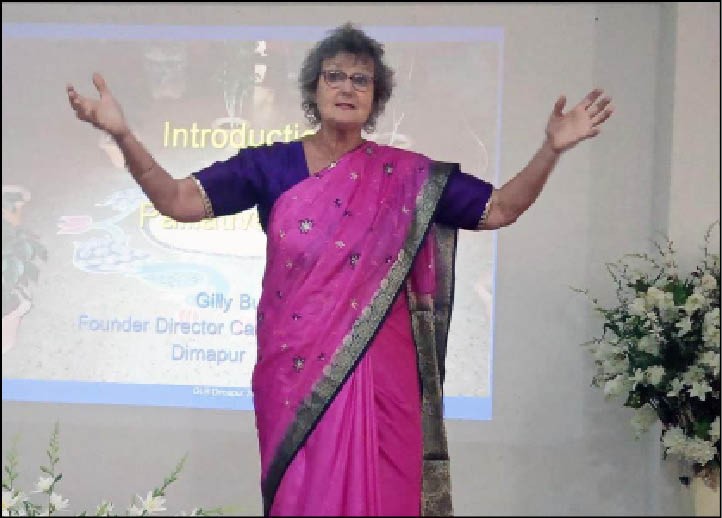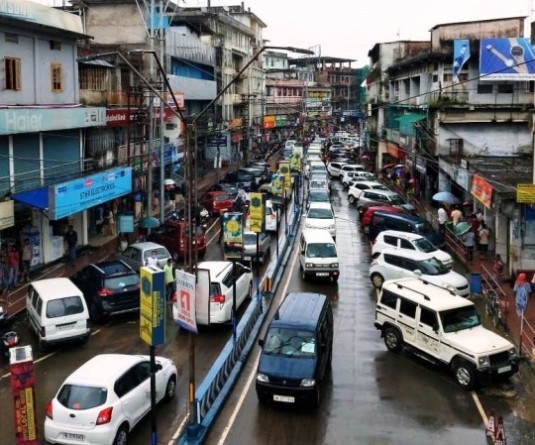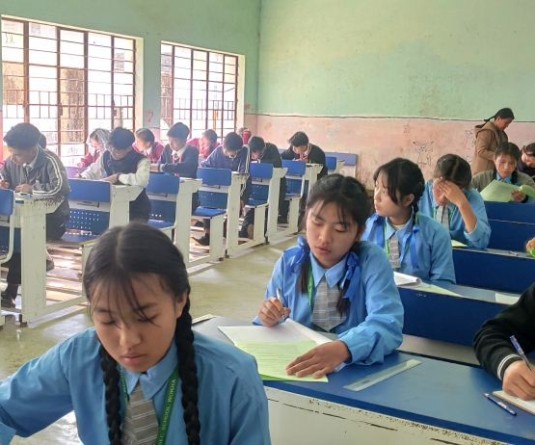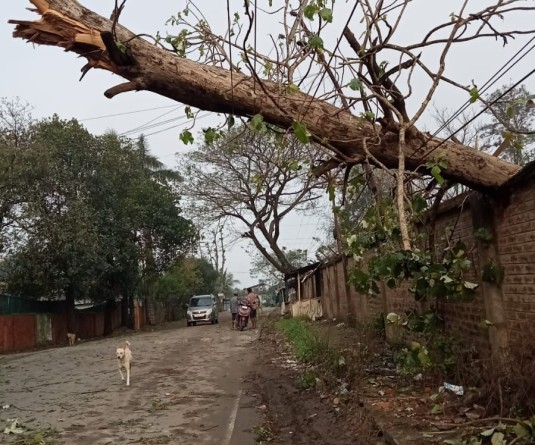Gilly Burn, Director, Care Response International and Founder-Director of Cancer Relief India speaking during the programme at Eden Medical Centre, Dimapur on Saturday. (Morung Photo)

Morung Express News
Dimapur | February 23
The concept of palliative care is relatively new in Nagaland and the country as well and to create awareness on it, the Eden Medical Centre (EMC), Dimapur in association with Indian Medical Association (Dimapur Chapter) organized Continuing Medical Education (CME) on Palliative Care Awareness at EMC on Saturday. Doctors and medical practitioners from various hospitals in Dimapur and social organizations attended the awareness programme.
Resource person, Gilly Burn, Director, Care Response International and Founder-Director of Cancer Relief India spoke on the Importance of Palliative Care in India. Terming supportive Palliative Care (PC) as a basic human right, she said PC needs to be started the very moment a patient enters the hospital. “We need competence but also compassion in treating patients who are the most important people in a hospital,” she said.
Gilly categorically told the nurses that their compassion and smile was very important to the patients and also emphasized on the importance of listening. “Lots of nurses do not communicate with the patients,” she noted adding that compassionate communication was the key to compassionate care. She also informed that 80% of patients admitted in hospitals arrive only at stage four of cancer disease in the country.
Gilly said PC goes hand in hand with anti-cancer treatment and termed PC as ‘supportive care.’ According to Gilly, PC is the total active care of patient involving the control of pain and other symptom and also social, emotional and spiritual aspects of care for the patient and his/her family.
She mentioned four cardinal principles in PC; Patient Autonomy (respect for the patient as a person), Beneficence (do good), Non-malfeasance (minimize harm) and Justice (fair use of resources).
Gilly has extensively worked all over the country since 1989 spreading message that the suffering caused by cancer can and must be relieved. She organizes and leads professional PC Study Tours in India.
Another resource person, Dr. Dinesh Chandra Goswami, Consultant Anaesthesiologist, Nightingale Hospital Guwahati and Secretary of Pain & Palliative Society, Guwahati spoke on the topic, “Pain Management in Palliative Care.” He said chronic pain affects 30-50% of world population and due to lack of awareness on PC, four out of every five persons in the world do not have access to pain control. “3.6 million people will die with untreated pain from cancer and HIV this year,” Dr. Dinesh maintained during his presentation. Dr. Dinesh also informed that each year, an estimated 40 million people were in need of PC and that 78% of them live in low and middle income countries. He said only about 14% of people worldwide needing PC currently receive it. He said that in PC one needed to be “very proactive” and described PC as a win-win situation for all. “Palliative Care is about quality living and listening to narratives of the patient is the first step to pain management,” he added. Dr. Dinesh said that the core components of PC included person-centred, holistic care, multi-professional teamwork, good communication skills and attention to details.
Tarun Sonowal, M.S.W. ICMR, State Cancer Institute, Guwahati also spoke on the topics, “Volunteering & Community Participation” and “Rehabilitation & Social Care.”
A hand-out provided by the organizers, stated that the first formal PC service in India was initiated as a hospice in Mumbai in 1986. At present, there are about only 138 organizations currently providing hospice and PC services in 16 states and union territories out of which 83 are in Kerala.





